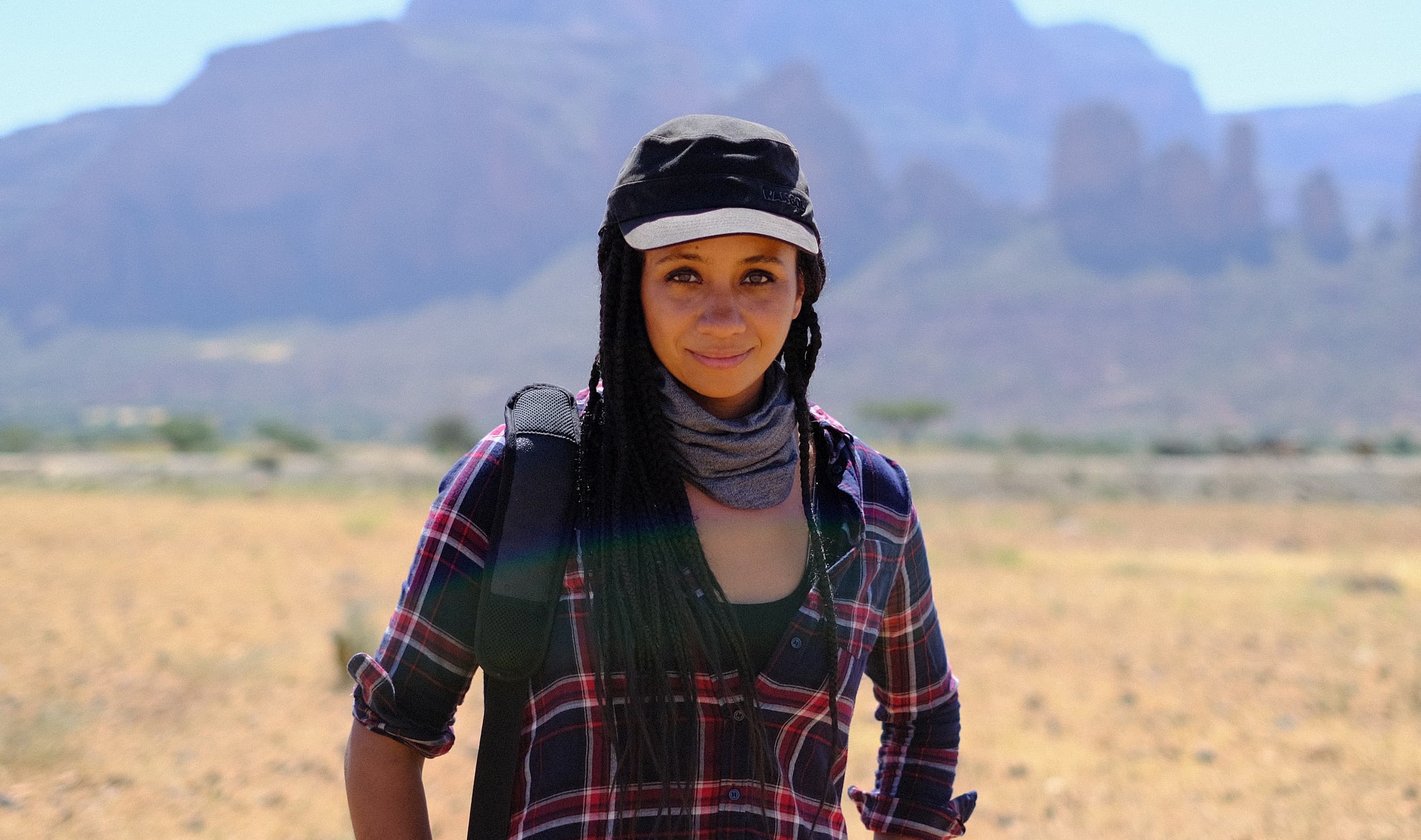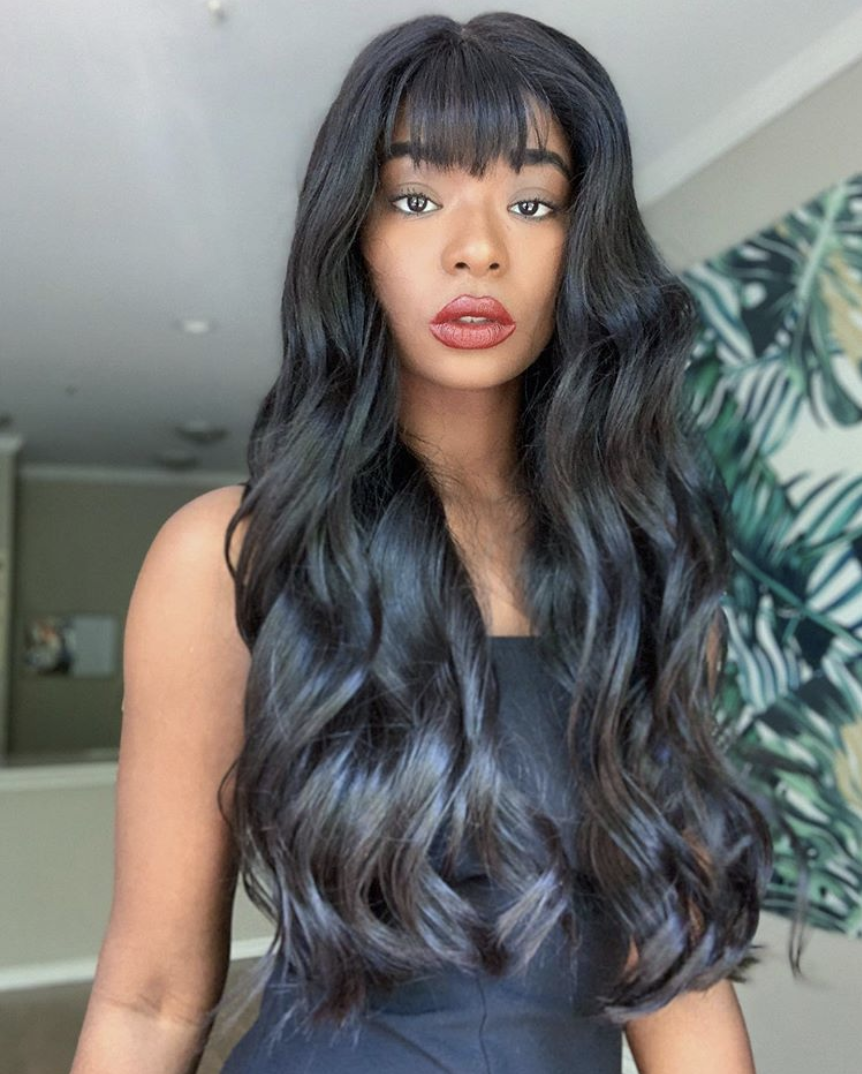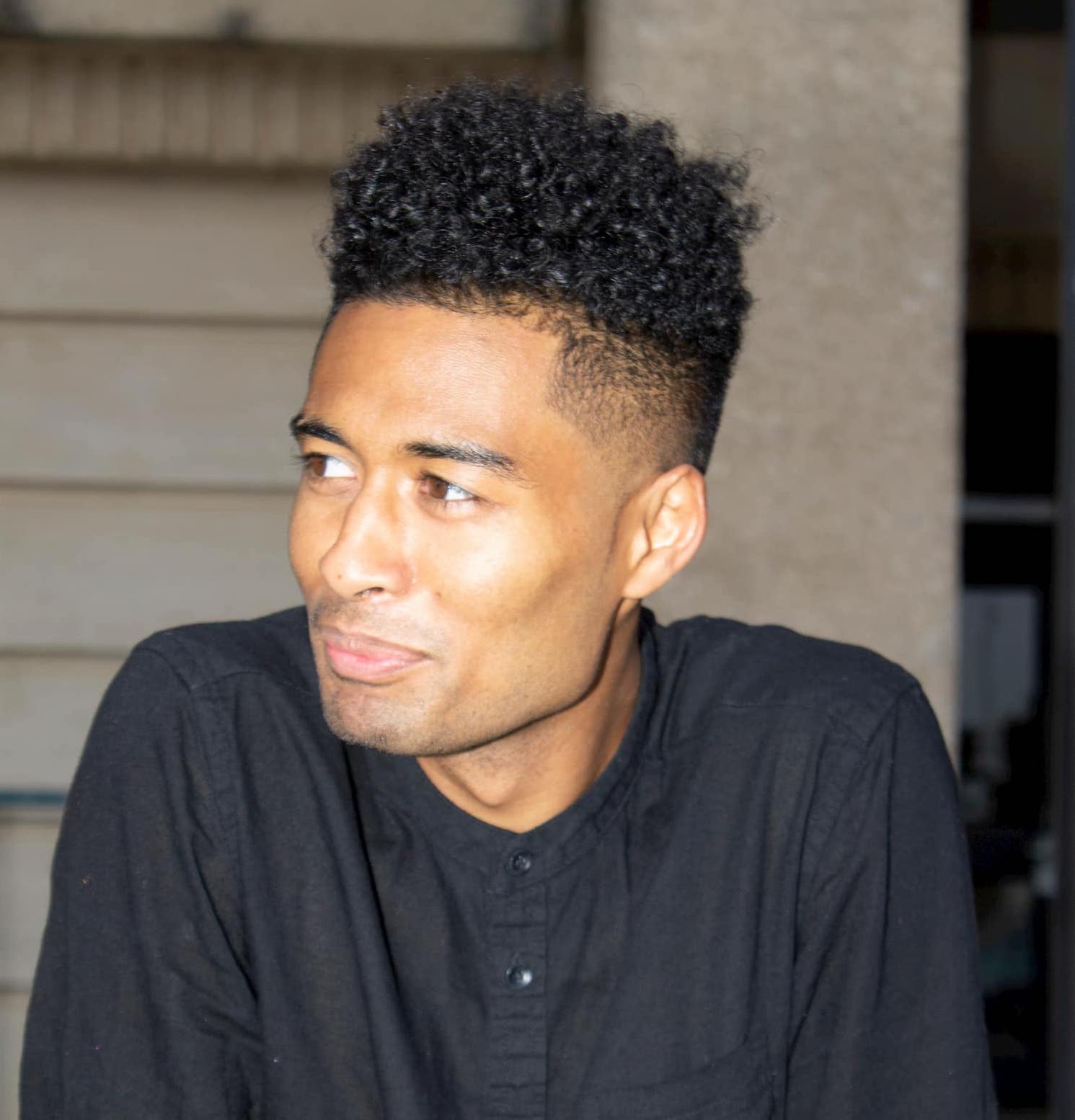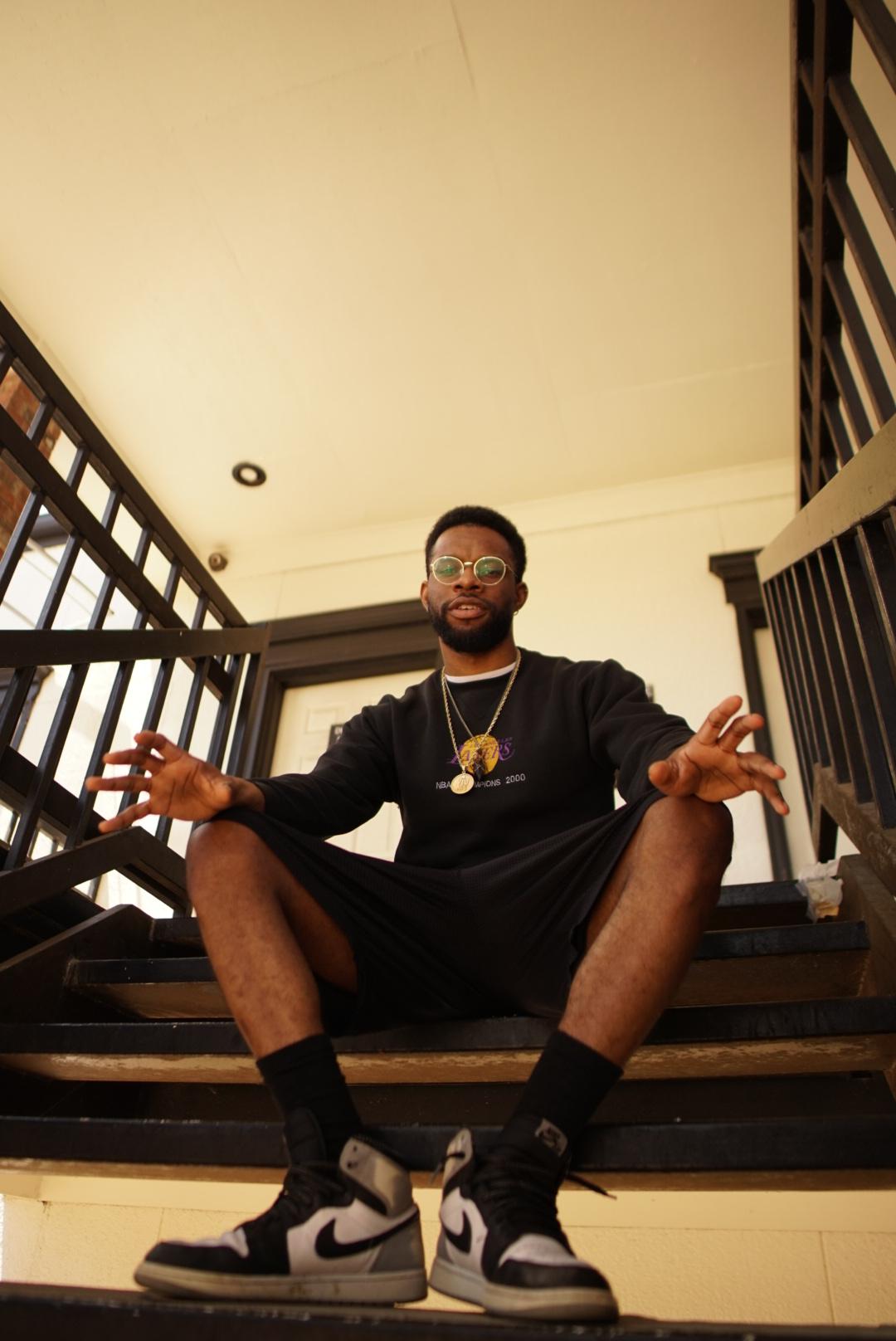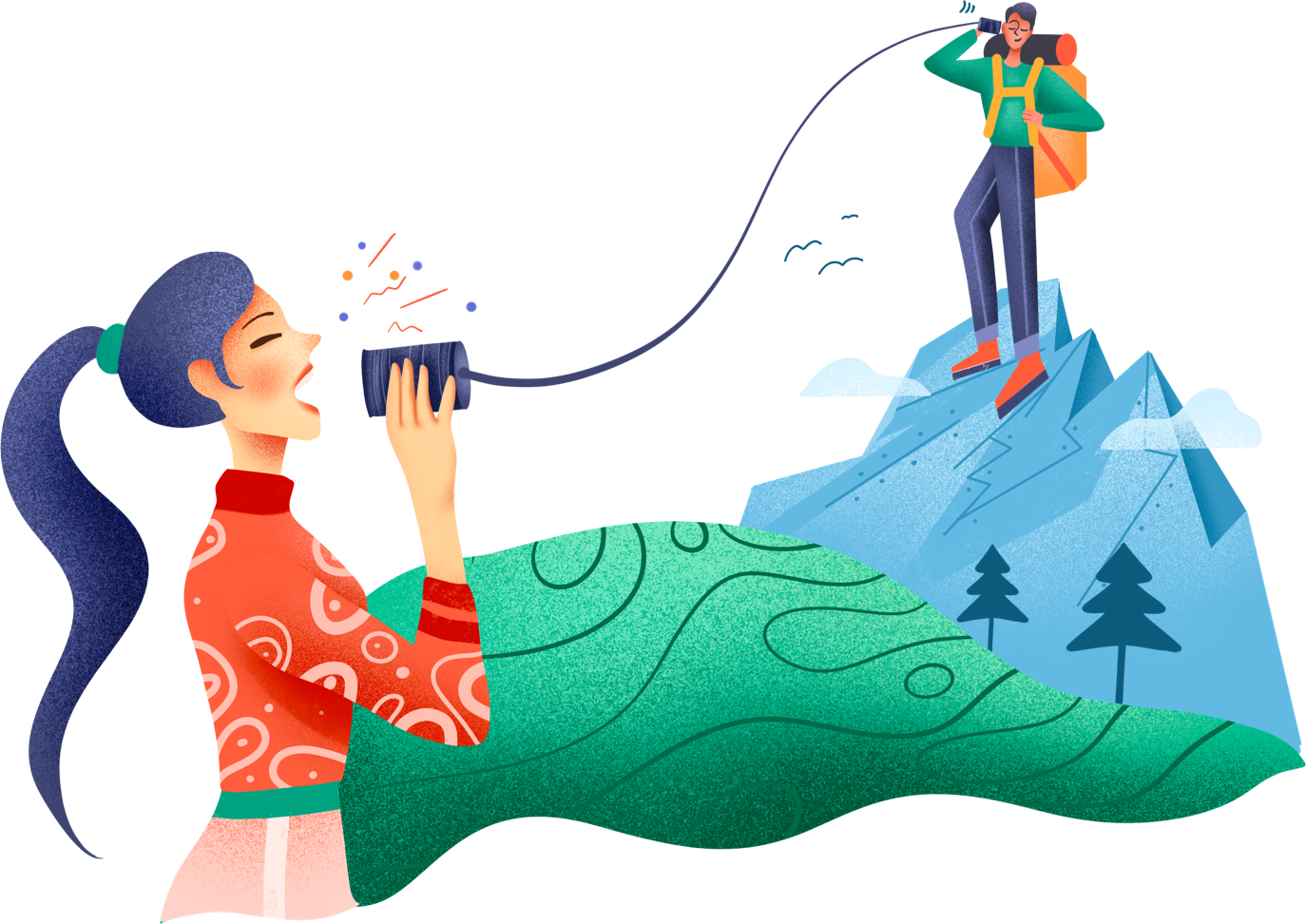Welcome to Conversations with Black Creators. This week, we're chatting with Kaliya Warren--a Los Angeles-based writer-director and cinematographer.
Editor’s Note: This is the sixth feature in our series, Conversations with Black Creators, which is intended to highlight Black creatives’ work in various fields. At Tako Agency, we are really proud of being creators--people who pour creativity and skill into beautiful projects that add value to the world--and we want to make sure that all creators have a platform from which to make every corner burst with life.
To support Black creatives, Tako Agency is making a donation to the Black Art Futures Fund for every feature in this series we publish on the Tako Stand. The outpouring of funding and philanthropic giving that was initiated when #BLM re-entered the spotlight in May was a GREAT thing, but we believe it’s consistent support over time that makes the most difference.
If you or someone you know would like to be featured, please fill out this form and we'll be in touch!
-- Grace, Creative Director
*Feature photo by Mearg Abay Abebe
Kaliya Warren is a writer, director, and cinematographer, currently based in Los Angeles, California. Through her inextinguishable desire to tell stories and extensive film work across the globe, Kaliya has been granted innumerable remarkable opportunities that we mere mortals only dream of--given that we have very vivid imaginations.
She’s documented the state of maternal health in Kigoma, Tanzania.
She’s captured intimate, poignant accounts of the fight for Civil Rights in the Mississippi Delta.
She’s amplified the voices of power people in pop culture (talking about things that actually matter).
She, in partnership with Delta Airlines, opened up a world of potential for young women considering careers in aviation.
She’s even managed to deliver a beautifully impactful narrative that contains no words at all.
Before you brush her away as some sort of exceptionally gifted (or exceptionally lucky) outlier, I want to make it clear that Kaliya didn’t accomplish all that because she possesses some mystical, intrinsic gift inaccessible to you or me. Navigating her career has been less than a breeze--in fact, she’s taken many hits in this male-dominated industry. She’s faced the same self-doubt and confusion with which many of us are intimately familiar.
What is unique about Kaliya is that the woman simply can’t put her passion down. She has. to keep. telling. stories. Film is her medium, but her drive comes from the unwavering commitment to make a difference in the world through storytelling.
All the work Kaliya has done to date--both in herself and in her professional life--is culminating in her upcoming feature, Expatriates--and beyond. I, personally, can’t wait to see what story she tells next.
Hey Kaliya! Go ahead and introduce yourself.
My name is Kaliya Warren, and I am a writer-director and a cinematographer.
Ah, a fellow writer! I didn’t notice that when I was looking into your work.
Yeah, I mainly work as a director and cinematographer. But I have written a feature that’s currently in development, called Expatriates.
Oo! Tell us about Expatriates.
It’s about a biracial American woman traveling solo for a travel photography project in East Africa. She falls in love with a British-Pakistani volunteer doctor, and they embark on a motorcycle trip from Egypt to Cape Town.
I made a Proof-of-Concept for it a couple of years ago in South Africa and Mozambique, and I actually won an award for it last year from Tribeca and AT&T Untold Stories. I didn’t get the main award, which was $1M to make your first feature, but I did win the $50K Fan Favorite award. We used that to do a pretty extensive location and tech scout.
I’ve heard that it’s easy to be pigeon-holed in the film industry--if you’re a DP, you’re a DP; if you’re a Director, you’re a Director. It’s particularly inspiring to see a female creator breaking that industry “standard.” Have you experienced any of that sort of “pigeon-holing” in your career?
It’s definitely difficult. People in this industry are very literal. Whatever they’re hiring you to do, they want to see that you’ve done that exact thing before--that you’re the safest investment. But as a creator, that can make it pretty difficult to grow and to be exposed to new opportunities.
"We’re hired for our accomplishments - not for our potential."
Have you experienced any unique challenges to being a Black creator in America, beyond your highly literal colleagues?
A lot of the time, in this industry, you don’t know why you’re not recommended or hired for something, so it’s tough to say exactly how it’s impacted my career. As I mentioned, the decision-makers want to see exact proof that you can do what they want you to do, and I think that’s doubly true for women of color.
You might see an instance where a white male director will be hired to do something that’s different in scale or scope than he’s done before, where those in power will take a leap of faith. But it’s rare to see those leaps taken for women and people of color. We’re hired for our accomplishments - not for our potential.
A lot of people allow Imposter Syndrome to discourage them from pursuing things they love and sharing them with the world. Have you experienced Imposter Syndrome? If so, what advice do you have for other creators who are struggling with it?
Well, with directing, it’s never occurred to me that I couldn’t do it. [laughs] But I’ve had some Imposter Syndrome related to my camera work, for sure.
I think the best way to overcome it is to fact check yourself. Think, “Why do I feel this way?” “Is this based in reality?” If, after you do that, you still feel you’re not qualified, work to get better.
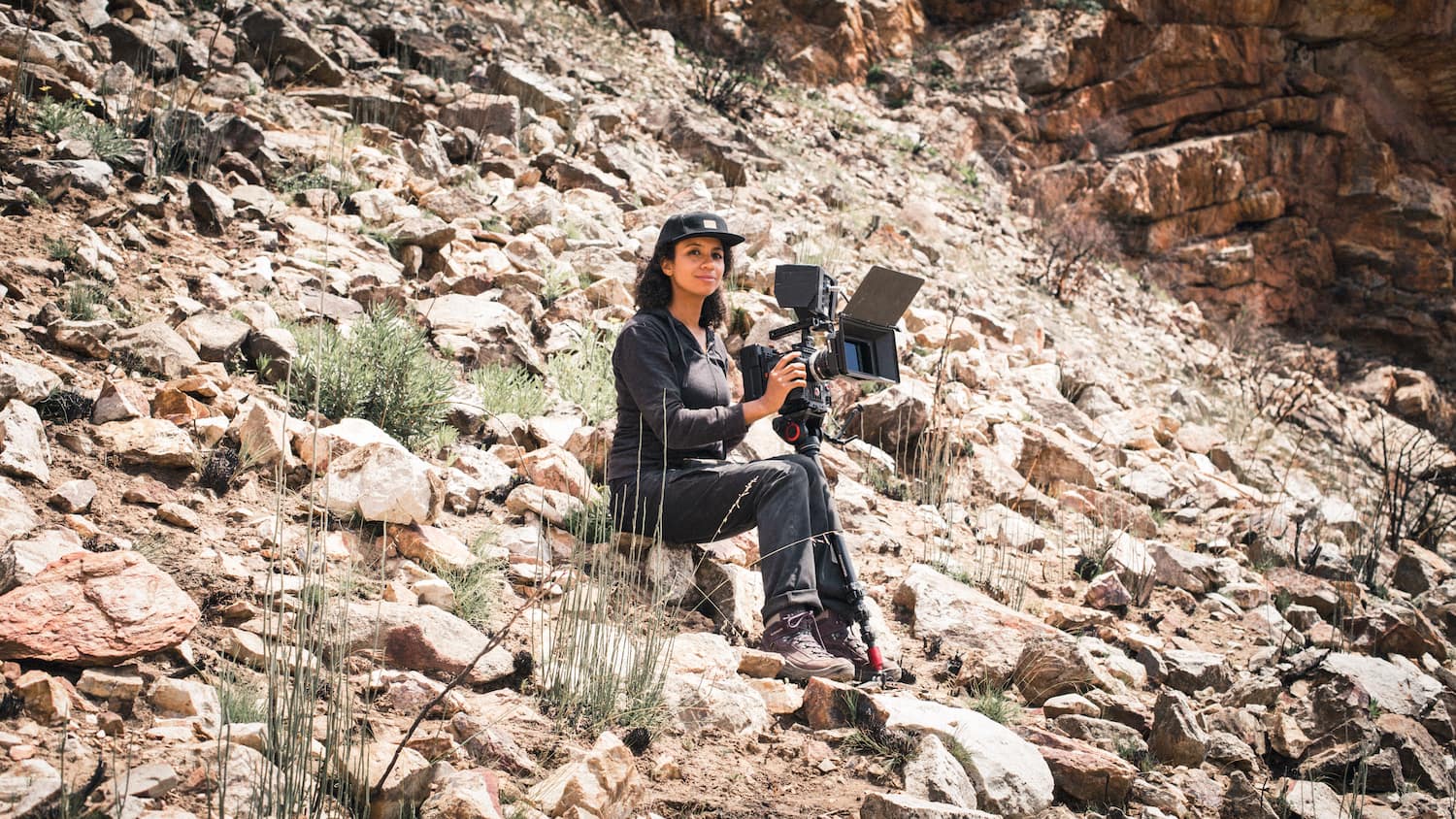
Photo: Neil Danvers
Your latest documentary project, Civil Rights In The Mississippi Delta, is awfully...timely. Can you tell us about your experience with that?
We actually shot that back in February and it, unexpectedly, became very timely--but it’s also timeless because the things we cover were happening long before the release, and are still happening today.
My grandmother was a sharecropper in Mississippi. That’s just two generations ago. I always intellectually understood what my ancestors had gone through, but to actually go there…[pauses] you could emotionally feel the weight of all this oppression. We experienced that twice--first with a tour of kids, and then again with a group of adults.
"It brought to light all of these self-esteem issues that are based in systemic racism and, worse, revealed that these kids have no idea why they think or feel that way."
We interviewed the kids--who were like, 13 - 14 years old--at the beginning of the tour, and we asked them outright, “Do you feel like you’ve been treated differently because of the color of your skin?” It was almost a unanimous “No,” but then we probed a little bit further and talked about colorism, and we got different answers.
We interviewed some girls who were like, “I hate my hair,” or “I don’t think boys will like me because I’m not light-skinned enough.” It brought to light all of these self-esteem issues that are based in systemic racism and, worse, revealed that these kids have no idea why they think or feel that way. It’s heartbreaking.
It was so cool to see how they developed over the course of the project. By the end, I asked them, “What would you say to someone who says that Black people should just ‘get over it’?” And they’d fully break down the process of sharecropping and systemic poverty, and I’m like, “Yes! Good for you guys!”
"It’s important to remember to have radical compassion for yourself."
What advice would you give to young Black creators, specifically?
I’m a little cynical [laughs], so the first thing that comes to mind is, “You have to be twice as good to go half as far,”--which isn’t necessarily untrue, but I don’t want to discourage anybody.
Kasi Lemmons is a mentor to me and a few other young Black female filmmakers, and she once told us, just, “Be excellent.” I interpreted that as, even if it’s just a day job--something that isn’t as personal h to me as my feature--don’t phone it in. Be the best you can be. You never know what opportunities that can lead to.
Along with that drive to be excellent, though, I think it’s important to remember to have radical compassion for yourself. It’s not about berating yourself in pursuit of perfection--you have to take care of your mental health.
How have you shown that radical compassion to yourself in your career?
In school, I wrote this short film based on events in my own life, and people really liked it. Once I graduated, I was asked to expand it into a feature script. I did, but it... wasn’t very good. [laughs] It would have been easy just to decide that I wasn’t a good writer, but, in reality - I tend to write from a personal place, and I didn’t have much material. Not all that much had happened to me yet!
So I decided to live a little. I went to Uganda and met these three guys who were traveling from Scotland to Cape Town by motorcycle. I backpacked solo in Thailand. I met someone who worked with Doctors Without Borders, and that ended up being [in the feature script]. II wanted to write about adventures. So I needed to have some myself to get inspired to write.
Before doing all of that, I was really hard on myself. Even though I was making a living in film in New York, I was constantly focused on all the things I hadn’t accomplished yet.
Once I started treating myself with compassion--acknowledging that I don’t have to be on the same timeline as everyone else--my mental state cleared up.
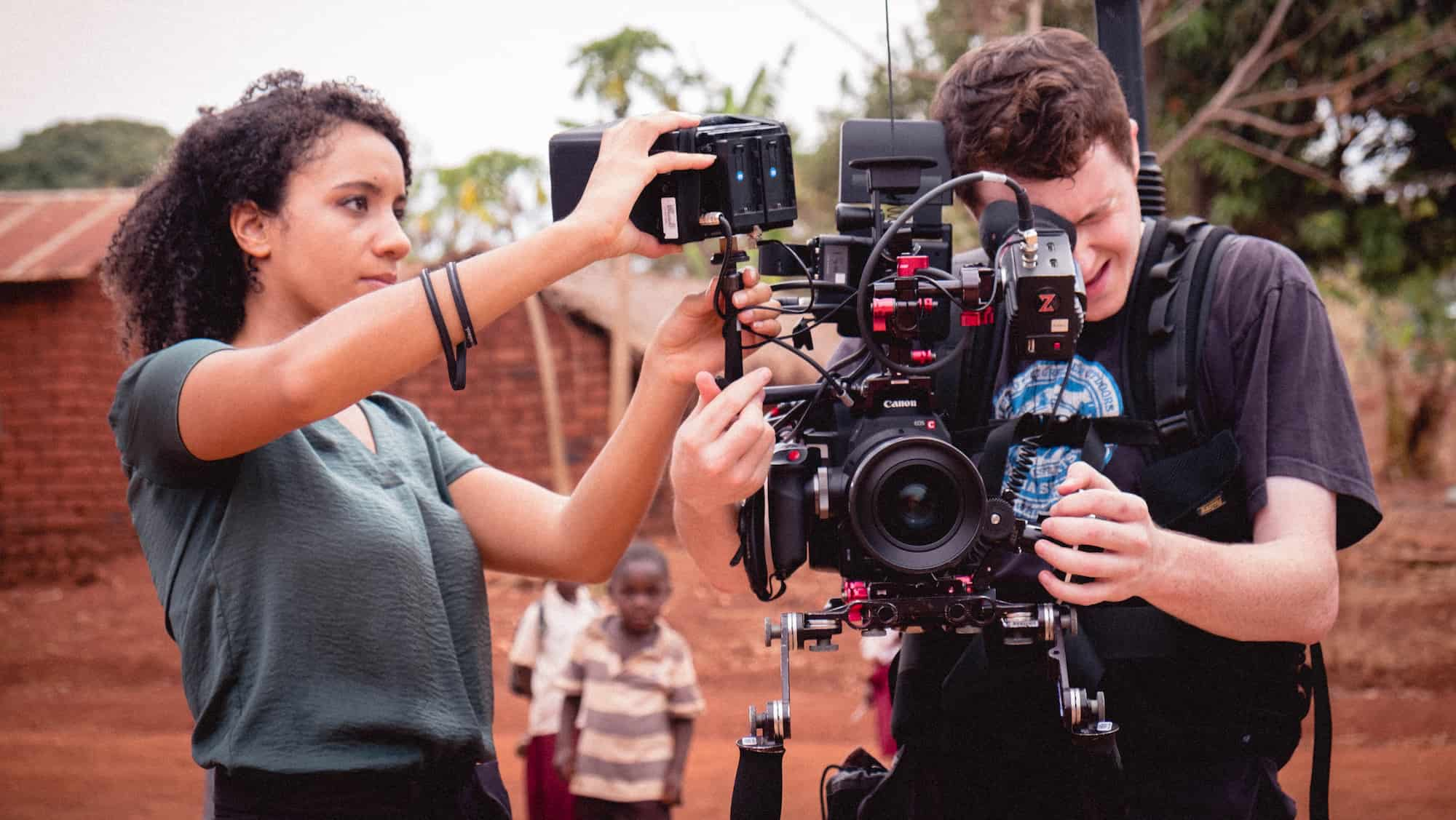
Photo: Daniel Disckson
You spend time with a wide variety of people whose lives differ in extraordinary ways. Do any experiences stand out for their impact on you personally?
Working on Civil Rights [in the Mississippi Delta] really impacted me. We got to listen to Elizabeth Eckford, who was a member of the Little Rock Nine, talk about her high school experience. It was heartbreaking. I had a tough high school experience, but it’s so miniscule compared to the level of abuse and trauma they endured. I can’t imagine returning to school everyday under those circumstances. They endured all of that for us - so that we could have the opportunities that we’ve been afforded.
In general, though, I am grateful for the opportunity to create doc-style projects just because I do get to explore all these different worlds and dig deep into so many subjects.
So, the diversity of experience itself is the thing that stands out to you?
Yeah! Particularly as a documentary-style filmmaker, you get to do things you’d never do otherwise. Like, I worked on a project for Delta and found myself in a cockpit with female pilots. Then, shooting a [yet-to-be-released] documentary about LGBTQ+ folks in Nigeria, I went through a market capturing B-roll with two armed security guards around me. In what other world would that happen? [laughs]
I worked on a doc in Tanzania about female reproductive health. Those women have been through some incredibly intense hardships, and meeting them was eye-opening. When I was working on In the Heights, the fact that I got to be in the dance rehearsals and recording studio watching Jon M. Chu and Lin-Manuel Miranda direct their talent--that it was actually my job to capture that process in a super intimate way--was surreal.
What is your definition of professional success?
I would like to be a working feature director--regularly getting the movies I want to make, made. It’s not an easy thing to get a film produced. Just because you manage to make one doesn’t mean anyone will give you a shot at making another.
Does that uncertainty make you feel uneasy?
Ummm…no? [laughs] Especially after I turned 30, I came to terms with it. That’s just life as a filmmaker. I’ve been working as a freelancer for 7 years now, which sort of trains you for that instability. You learn to plan ahead a little further and create your own certainty--knowing that things will happen if you have patience and keep pushing.
Also, I worked a more “certain” desk job for about a year and a half after graduating and I was just like….no. [laughs]
"Personal success for me will be when I fully acknowledge that yes, there will always be more to do and further to go, but that’s ok--we can still be at peace with where we are right now. "
What about personally--what do you consider personal success?
Having peace of mind. When you’re a freelancer, there’s no end to the to-do list. If you finish your client work, you’re like, “Ok, now I should be working on my screenplay.” I’m still working on telling myself it’s healthy to take an evening or a weekend to just be.
Personal success for me will be when I fully acknowledge that yes, there will always be more to do and further to go, but that’s ok--we can still be at peace with where we are right now.
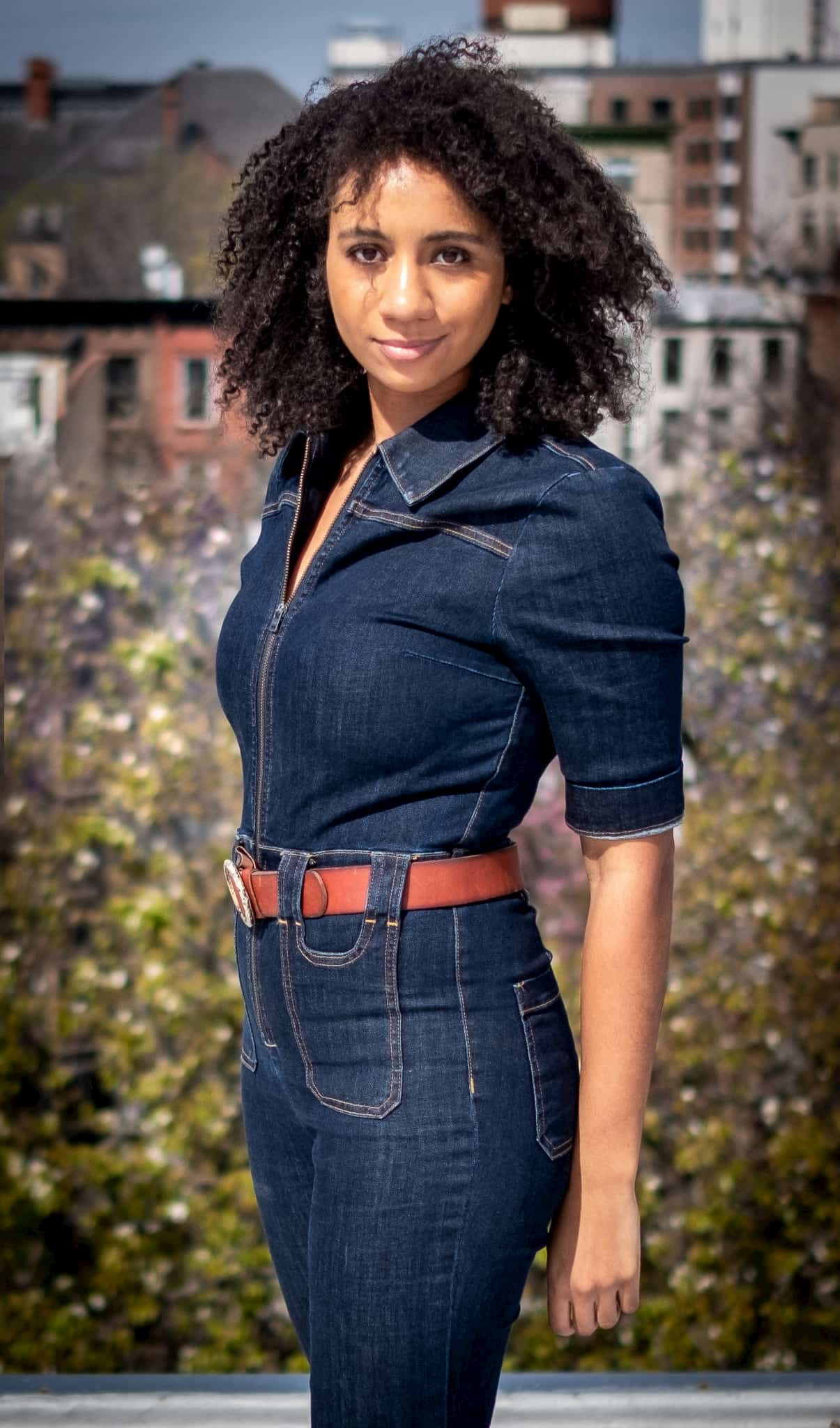
You touched on this a little before, but how have your personal life experiences influenced your work?
My feature, Expatriates, is the best example. It’s a feminist coming-of-age love story set in a very specific social context.
In most love stories, you see a “good girl” falling for a playboy and somehow she’s the one to “change him.” We see that and we’re like, “Yes! That’s how it will be! I can change the asshole!” [laughs]
But it typically doesn’t happen that way. Most of us go through those infatuations as young women, but (ideally), we grow up and out of them, and we feel much better about ourselves for having made it through. I wanted to create a story that reflected that experience, something more true to my own history and the experiences of the women that I know.
Outside of the romantic angle, much of the social context [of the film] came from my time in Tanzania and explores the concept of isolation. We were often working alongside white, missionary-minded people. Even if they weren’t overtly religious, their prevailing pattern of thought was that, even if you’re a 20-year-old American kid, you “know better” than a 40-year-old Tanzanian person. I obviously found that pretty problematic.
At the same time, because I am light-skinned, speak with an American accent, and dress a certain way, I was considered an “Mzungu” by the locals, which means “white person.” As someone who identifies as black, this was pretty disorienting. I felt very isolated in my perspective.
My multicultural background helped inform the male character [in the feature]. He’s both Pakistani and British. He’s Muslim, so he can relate to some of the East Africans through religion, but he can also kind of code-switch to identify with the Westerners.
We also explore the idea of isolation through Kenzie--who is the main character--not only from a racial perspective, but also because she’s traveling alone as a woman. It’s all tied together.
"It’s a lot easier to get things done when you’re being nice to yourself."
What challenges have you experienced (practical, mental, etc.) in your career, and how did you bounce back from them?
When I was in my mid-20s, I was working steadily in film - but I was a bit stagnant and feeling really stuck. As a result, I was experiencing some rough mental health challenges.
One of my favorite quotes is, “The only way out is through.” So, one year, I decided to do everything I could to make my life what I wanted it to be. I ran a half marathon, went to Thailand, wrote my script, got into therapy... [laughs] I mapped out every step I could think of to get me where I wanted to be, and did everything to get through.
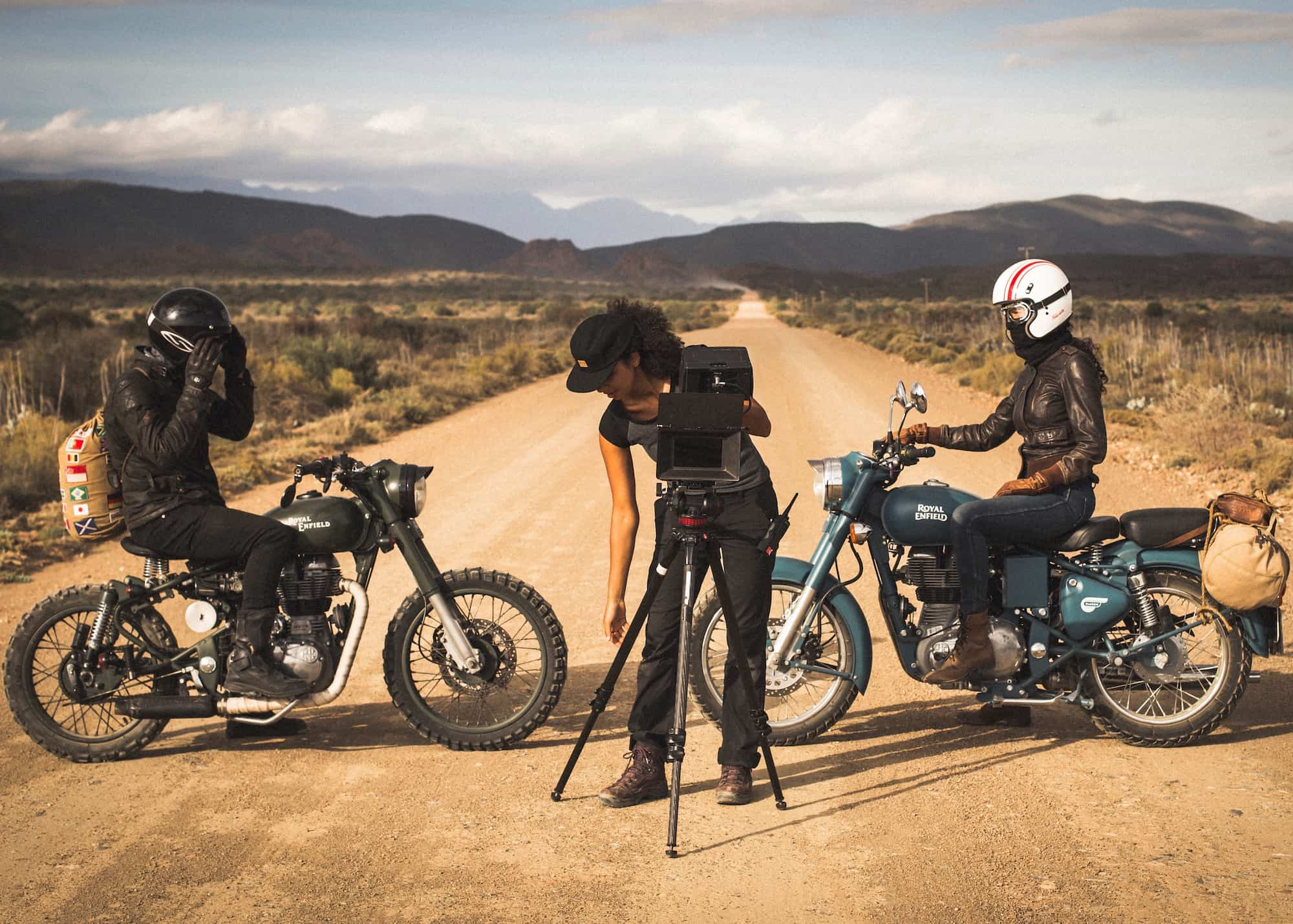
Photo: Neil Danvers
It can be really hard, especially when dealing with mental health issues, to even pull out the motivation it takes to take the first step. Where do you get that motivation?
I tend to look at things from a problem-solving perspective: parsing out the actionable steps and being realistic about how long each of them will take. It’s important to remember that doing more begets doing more. Things that seem insignificant are just as relevant to progress as the larger, more “impressive” steps.
Exercise is a big thing for me. That’s a small step I like to take--just roll out of bed and move my body. Consistency is key, but so is having compassion for yourself when you don’t “live up to” the progress you set out to make. It’s a lot easier to get things done when you’re being nice to yourself.
The question has been asked in a thousand ways, but I want your perspective: what is art’s place in the grand scheme of things? Why does it matter?
Art has such great influence on what we see as normal and acceptable in the world. For example, you could watch a string of American sitcoms and you’d think, “OK, so most middle-class families in America make around $120K a year, they have “this” type of job, a stay-at-home parent...” I remember being surprised when I learned in college that American’s median household income is about half of that. Television convinced me that something was normal, when it wasn’t.
Artists in general have that same power to influence the world in deeply subliminal, psychological ways. It’s important for us to understand that power and what we’re doing with it.
Do you think that’s part of the reason representation is so important in the media?
Yes, absolutely. For example, when I was interviewing those young girls [for Civil Rights on the Mississippi Delta], they didn’t see themselves as beautiful because they don’t look like the lead ingenue in the films they see.
On the flip side, if you have a young white kid who hasn’t been personally exposed to marginalized communities, and the only representations they’ve seen of them are what’s on TV - that has incredible power to shape their opinions and biases, that they’ll take all the way into adulthood.
What’s your favorite project to date?
That’s so hard--they’re all my babies! [laughs] One that’s really close to my heart was the first project I did in film school where I was like, “Wow, I did it--I made something I really like.” It’s called Trip the Light Fantastic.
I heard this song 40 Day Dream by Edward Sharpe and the Magnetic Zeros, and I just pictured ballet dancers and graffiti and like, this 80s aesthetic--so I went and made it happen. We worked with a bunch of student dancers and we used 16mm [film]. It was so much fun. It’s very much a “student film” [in terms of quality], but it’s still super special to me.
Let’s wrap it up with the question we ask everyone. What’s your favorite taco filling?
Well, I like tacos, but I’m more into, like...quesadillas. Tacos are fine, but I like to take more bites of the same thing. [laughs]
OK, what do you put in a quesadilla?
My favorite place in New York makes quesadillas with al pastor-style pork, cotija, guacamole, and lettuce. It is...the best.
Mad love to Kaliya for sparing precious time (of which she does not have a lot!) to share her awe-inspiring experiences with us. Be sure to be on the lookout for Expatriates. In the meantime, you can follow Kaliya on Instagram here.
Don't forget to check out our other Conversations here!









